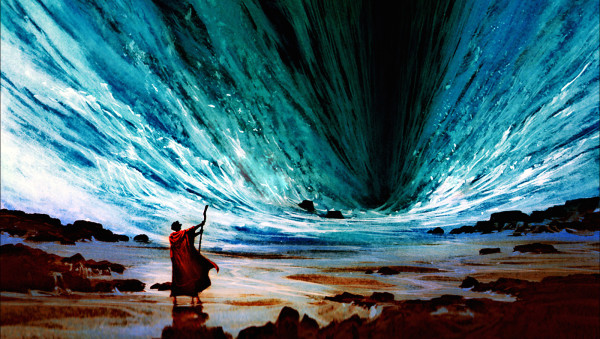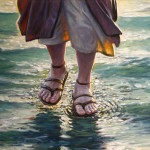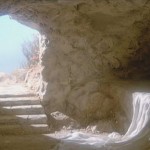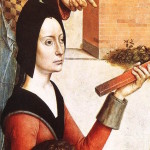What Constitutes a Miracle?
by Karlo Broussard
Filed under God

After reading some exchanges on Facebook that were inspired by my recent blog post concerning miracles, it became clear I need to explain exactly what a miracle is.
A miracle is defined as an extraordinary sensible effect wrought by God that surpasses the power and order of created nature.
That’s a mouthful, so let’s unpack it. There are five aspects to the definition.
Aspect #1: Exclusively attributable to divine power
Only God can be the cause of a miracle. This excludes any sort of occurrence that may have unknown created causes—whether it be a hidden force of nature, a force of nature applied by man in an artificial way, or the forces of nature utilized by pure spirits acting with only their natural faculties. Such effects would be wonderful and marvelous, but not miracles.
Aspect #2: Beyond the power of created nature
An effect can be beyond created powers in three ways.
First, a miracle may surpass created powers in the essence of the effect produced. The glorification of the resurrected body at the end of time is an example of this. Such glorification is—by its nature—beyond the power of any created cause. Another example would be the sun moving east instead of west, or standing still as recounted in Joshua 10:13.
Second, the miraculous effect may surpass created powers with regard to the subject in which it manifests and not the essence of the effect, which may be produced in another subject. For example, nature produces life in humans, but it cannot do so in a corpse. It is natural to have sight, but not for the blind. Notice the miraculous is not identified in the essence of the effect—life and sight—but in the subject—a corpse and damaged eyes.
The third way a miracle may surpass created powers is according to themode or manner that produces the miraculous effect. In other words, God may cause an effect that nature usually produces but contrary to the way nature produces it. For example, it belongs to the order of nature for a fever to pass. But if the fever leaves by command, then it is a miracle. A broken bone naturally mends itself over time, but if by the power of intercessory prayer the bone heals immediately, then it is a miracle. Rain is another example. Created powers within nature produce rain, but we consider it a miracle if by the command of a prophet rain falls from a clear, blue sky.
In sum, effects can supersede created powers by the essence of the effect produced, with regard to the subject in which the effect occurs, or according to the mode in which the effect is produced.
Aspect #3: Beyond the order of created nature
So far a miracle has been shown to be solely the work of God—beyond all created powers. But the creation of the world and the soul are effects attributable exclusively to God. Are these divine acts considered miracles?
The answer is no. While the creation of the world and the soul are effects that only God can cause, it is not beyond the order of created nature. The creation of the world is the beginning of the order of created nature, and the creation of the soul completes human nature, which is a part of creation. Both actions bring about things belonging to the order of created nature and thus are not miracles. This idea that a miracle must be beyond the order of created nature constitutes the third aspect of our definition.
Aspect #4: Extraordinary
In saying a miracle is extraordinary we simply mean it is contrary to the ordinary natural and supernatural course of things. To return to our example of the creation of the human soul, it is not extraordinary, because God decreed from all eternity that creating human souls would be part of the ordinary course of things, especially considering the human soul completes human nature.
Miracles must also be contrary to the ordinary supernatural course of things. For example, the infusion of grace in the soul through the sacraments and the guidance and inspiration of the Holy Spirit to perform saving and meritorious acts are not miracles because God wills them as a regular occurrence in the supernatural order.
Aspect #5: Sensible
The last aspect of a miracle is that it is sensible—subject to perception by the senses. This follows from the purpose of miracles defined by the First Vatican Council:
"[I]n order that the submission of our faith should be in accordance with reason, it was God’s will that there should be linked to the internal assistance of the Holy Spirit external indications of his revelation, that is to say divine acts, and first and foremost miracles and prophecies, which clearly demonstrating as they do the omnipotence and infinite knowledge of God, are the most certain signs of revelation and are suited to the understanding of all." (The Dogmatic Constitution on the Catholic Faith, ch. 3; emphasis added).
The Council Fathers make it clear that miracles are meant to prove the authenticity of God’s revelation. Such revelation must be marked with a divine character plain to see in order that all, including the ignorant, may know it is authentic. Here miracles have their function, serving as a seal to authenticate God’s communication to humanity, putting the revelation’s authority beyond all doubt.
Furthermore, as miracles confirmed the authenticity of Jesus’ revelation in the apostolic age, the miracles performed throughout the history of the Catholic Church prove the Church’s claims to be true—namely, that it is the church founded by Christ.
Related Posts
Note: Our goal is to cultivate serious and respectful dialogue. While it's OK to disagree—even encouraged!—any snarky, offensive, or off-topic comments will be deleted. Before commenting please read the Commenting Rules and Tips. If you're having trouble commenting, read the Commenting Instructions.












